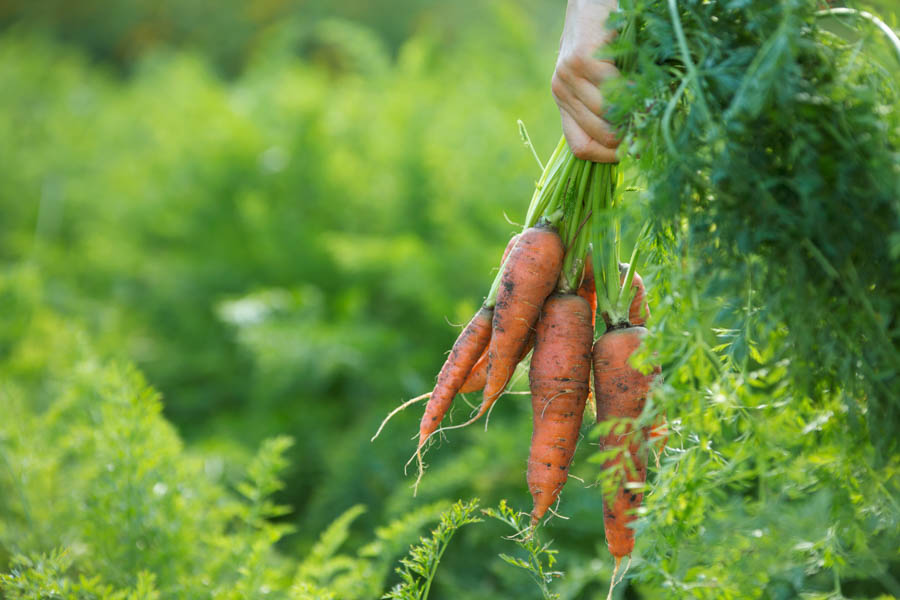Storing Freshly Harvested Carrots: 5 Essential Tips

You have just harvested your carrots. How should you prepare and store them? Here are five essential tips:
- Carrots last for up to three to five months under ideal the conditions of 32° F and high humidity.
- To optimize the storage life of carrots, brush off all dirt, then wash and dry thoroughly.
- Unless you are using the carrots right away, remove the green tops by cutting through the green foliage, not carrot flesh, and place in a plastic bag. Leaving the green tops attached pulls moisture from roots to greens; bunched carrots with tops still attached can be expected to last only from 10 to 14 days, even in optimal storage conditions.
- Humidity in refrigerators is too low for long term carrot storage. To store carrots in your refrigerator, do so in a humid produce drawer with humidity turned up to full, or with an open bowl of water, and/or in a cloth or plastic bag to reduce drying. Storing carrots in high humidity is essential to prevent loss of crispness and desiccation.
- Placement of carrots in your refrigerator is also important. Segregate carrots in a separate drawer, away from fruits that produce ethylene gas: exposure to the ethylene gas given off by most fruits will cause carrots to have a bitter flavor within two weeks under normal storage conditions.
Carrots are a common ingredient found across a spectrum of cooking traditions and can be prepared in an endless variety of ways. In traditional French cuisine, carrots are one of the three ingredients in mirepoix, a combination of onions, celery and carrots that forms the basis for many sauces, stocks and soups. In American cooking, carrots are often used to flavor the drippings of roast chicken or beef. They can be braised in butter, roasted in olive oil, shredded for cakes and slaws, pulverized into juice, pickled for garnishes, sliced and baked for chips and dipped raw into hummus.
Carrots are one of the most nutritious vegetables that can be grown. They contain numerous vitamins, especially large amounts of vitamin A; beta-carotene; antioxident carotenoids; and many other vitamins, minerals, and nutrients.
GardenZeus has customized gardening information by plant and zip code. To get started with customized information for carrot, enter your zip code here.
Other articles of interest: